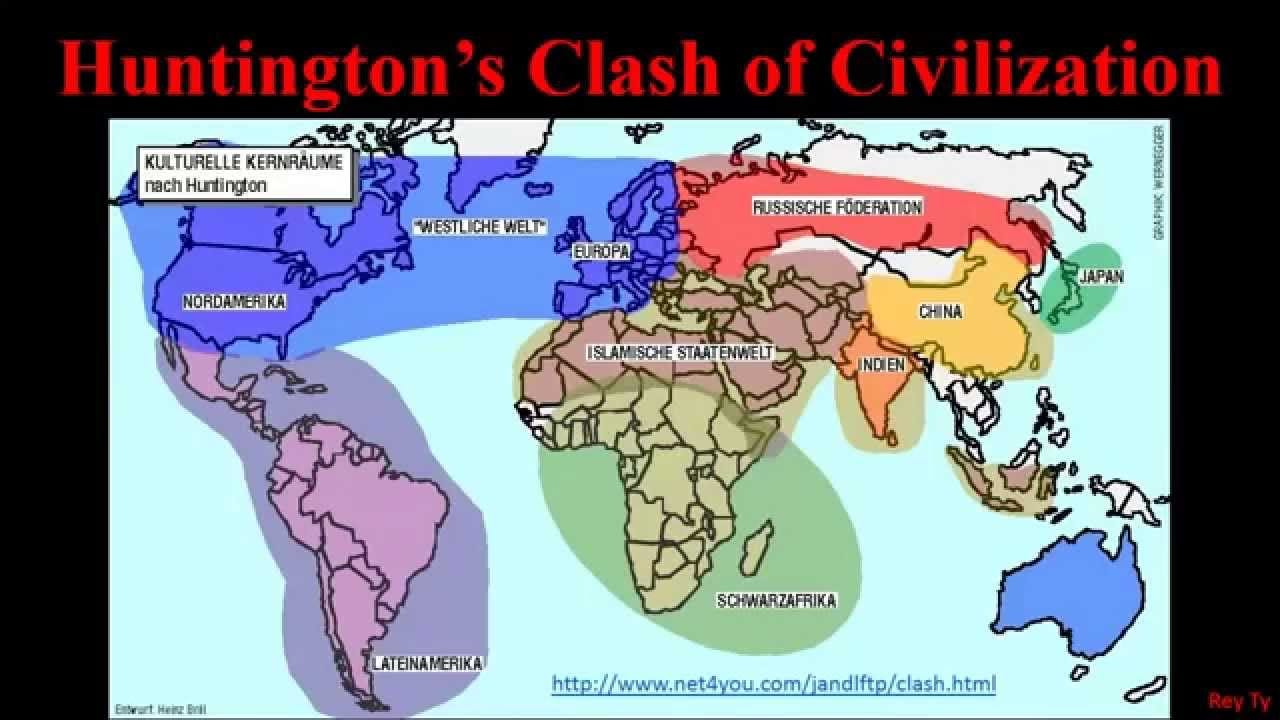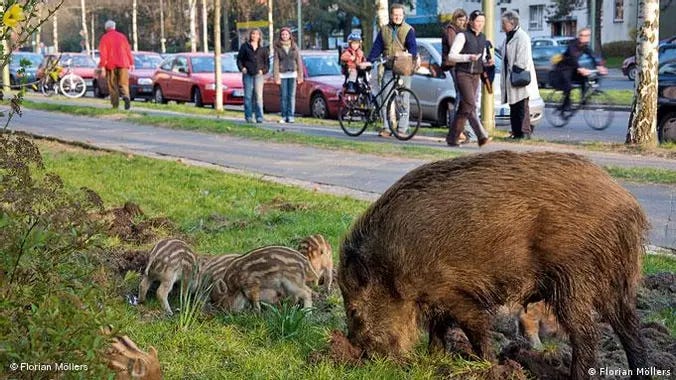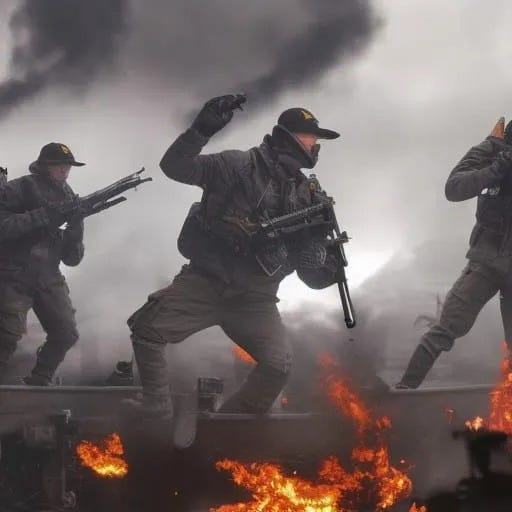Introduction to Archeofuturism
My perspective on a theory which may show the way our civilization is heading.
What is Archeofuturism?
The phrase was coined by French new right (at the time) writer Guillame Faye and is the title of a book he published in 1998. The book's perfectly readable, and it's fairly accessible by the standards of right wing French theorists. It is very orientated on the French perspective and spends a long time discussing the failures of the French new-right. It's also remarkably pro-European and pro-Russian. The discussion of weird human/animal hybrids is also a bit strange.
Doctor TurnCoat reviews the book in detail here:
Perhaps the most important chapter of the book is actually the fictional one at the end which shows Faye's view of what an archeofuturist world would look like. He sees a world where the top 5-10% control and use advanced technology and the rest of society live as something that is a mix between Orthodox Amish and the late medieval period. There are maglevs, drones and electric taxis side by side with a pagan revival and horse drawn transport.
The Idea Pivots
The idea of archeofuturism seems to hinge on two main points. Firstly, that the whole world can't all live a modern technological life (and nor should it) and secondly that modernism has sown the seeds of it's own destruction by ignoring traditional thought. He sees the modern world decaying rapidly through a series of catastrophies in the early 21st century.
Archeofuturism is his view of how humanity will deal with this collapse by using limited advanced technology, abandoning the god of progress and returning to a sustainable and tribal-centric way of living.
“We are returning to the archaic, that is, the eternal condition of mankind, which the brief parenthesis of ‘modernity’ made us forget, in other words, the rivalry of peoples, of ethnic and cultural blocs and of civilisations.”
― Guillaume Faye, Convergence of Catastrophes
Jack Donovan wrote about the theory of traditionalism and summarised its ideals as follows:
the separation of gender roles
transmission of ethnic and folk traditions
visible and structuring social hierarchies
the worship of ancestors
rites and tests of initiation
organic communities (family and folk)
de-individualization of marriage (marriage as a concern of the community)
prestige of the warrior caste
inequality among social statuses (not implicit, but explicit and ideological)
definitions of peoples and groups (tribalism vs. globalism)
Ideals, I'm sure, that most of us see as logical or at least within the realm of things we'd consider. There's also a strong sense of smaller communities being more appropriate - something theorists of all types have often come up with and ties into concepts of belonging and tribe as well as anthropology (See Dunbar's number)
Archeofuturism and Other Ideas
Of course, the idea doesn't stand alone and people have wanted to move back to a simpler life ever since the start of the industrial era. The idea of taking the best of the modern world and mixing it with the best of the past isn't revolutionary either. The main strength of the idea is that it provides a shorthand for people like us, it's the idea of building a traditional world that makes people happier and doesn't rely on the modern god of technological progress to save us, without throwing away beneficial technologies.
Some ideas show clear overlap with other writers. Huntingdon's idea of the Clash of Civilizations has some connections in the way it sees the world breaking into civilization based spheres along traditional fault lines. Huntingdon's ideas are a lot more mainstream and less prescriptive of a revolutionary remaking of society or solving a problem. His theory works simply to try to predict and explain conflict in a non-Marxist or non-liberal manner, something quite rare. Both writers also differ in their view of Russia, with Huntingdon seeing separate Western and Russian spheres and Faye seeing a pan-continental empire.
Neo-feudalism is another idea that seems superficially similar, but on closer inspection is largely a leftist critique of how the 1% are controlling the world and rebuilding an utterly rigid class system where real power comes from the number of serfs you control.
It is worth pointing out that the theory of archeofuturism is not mythologising the primitive. It's not saying primitive people were so much deeper than us or there is so much wisdom in undiscovered tribes. It's focus is that modernism is contrary to human nature and, eventually, political reality.
Archeofuturism in Fiction
Fictional representations of this type of lifestyle are not impossible to come by, but tend to focus on one element or the other rather than both.
Some, like Fight Club focus on the archeo and not the futuristic elements;
“In the world I see you are stalking elk through the damp canyon forests around the ruins of Rockerfeller Center. You'll wear leather clothes that will last you the rest of your life. You'll climb the wrist-thick kudzu vines that wrap the Sears Towers. And when you look down, you'll see tiny figures pounding corn, laying stripes of venison on the empty car pool lane of some abandoned superhighways.”
― Chuck Palahniuk, Fight Club
This itself is something which is almost a paraphrase of a much earlier book I discovered via Dominique Venner’s writings;
“Happiness will only come to you on the day the great trees break through the streets, when the weight of the vines cracks and Obelisk and bends the Eifel tower; when in front of the ticket offices of the Louvre only the light hum is heard of ripe pods and falling wild grains, the day when frightrened bpars come out of the caves of the metro with quivering tails…”
- Jean Giorno, The Song of the World, 1932
One example that shows a leftist’s view of archeofuturism (as a dystopia), is the Hunger Games series. Traditional families, low technology lifestyles and bow hunting are set at odds with a ruling caste who have high technology and a fragile but futuristic world. Of course, the books aren't trying to recommend it as a way of living as they are typical commercial media stripping away the important underpinnings of culture, religion and biology. They focus on class warfare and oppression (with an unhealthy yet realistic dose of mental illness) rather than if the people in the primitive 'districts' have fulfilling lives.
The medieval houses of Dune, combined with the restricted usage of technology and common belief systems can be taken as another perspective on a fictional archeo-futuristic world.
World War Z may take a fanciful reason for collapse, but the shift in power balance, return to castles and close combat and theocratic republics are thoroughly archeofuturistic ideas.
The German series, Tribes of Europa, also has elements of the archeofuturist aesthetic. I admit I’ve never watched it though.
Archeofuturism in Reality
I doubt any of us are likely to join the Amish or return to that level of technology without a severe global shock.
When you consider the increasing automation, the move from production to unskilled services industries and also the rise of non-productive employments it's no surprise people yearn for a time of greater self reliance. The most common answer for that problem is either more wealth re-distribution or the guaranteed basic income. Archeofuturism is perhaps an alternative answer to this problem.
There are groups out there who are building lower technology and more tribal communities which can be described as archeofuturistic. Probably as many of them on the left and on the right and with slightly different goals.
What can we say is important in the event of the world moving towards Faye's vision?
Land is now a store for money, whereas before it was the other way around - money was capital to acquire and develop land. Indeed, the idea of movable wealth and status, rather than wealth and status tied to place is what saw us move into the post-modern, post-industrial and globalised era we line in.
After all, how much land is owned for any productive purpose versus as a form of investment or rental property?
In the context of archeofuturism this could be easily fixed by rural land becoming effectively worthless - something easily done if transport costs rise or rural population density falls. When you can only travel 40 miles in any direction all land outside that zone plummets in value until local nexus such as market towns revive.
We can also see elements of the great reset suggesting an urban life of high tech, and a rural one left behind. This article, Welcome to 2030, has proved very prophetic for our times. It mentions the archeo-people, as an other.
My biggest concern is all the people who do not live in our city. Those we lost on the way. Those who decided that it became too much, all this technology. Those who felt obsolete and useless when robots and AI took over big parts of our jobs. Those who got upset with the political system and turned against it. They live different kind of lives outside of the city. Some have formed little self-supplying communities. Others just stayed in the empty and abandoned houses in small 19th century villages.
It’s an interesting idea, and one which has strong echoes in our reality, if you look at the idea’s kernel, and not the strange post-humanism or pan-Eurasian politics of its creator.
I shall return to this.







